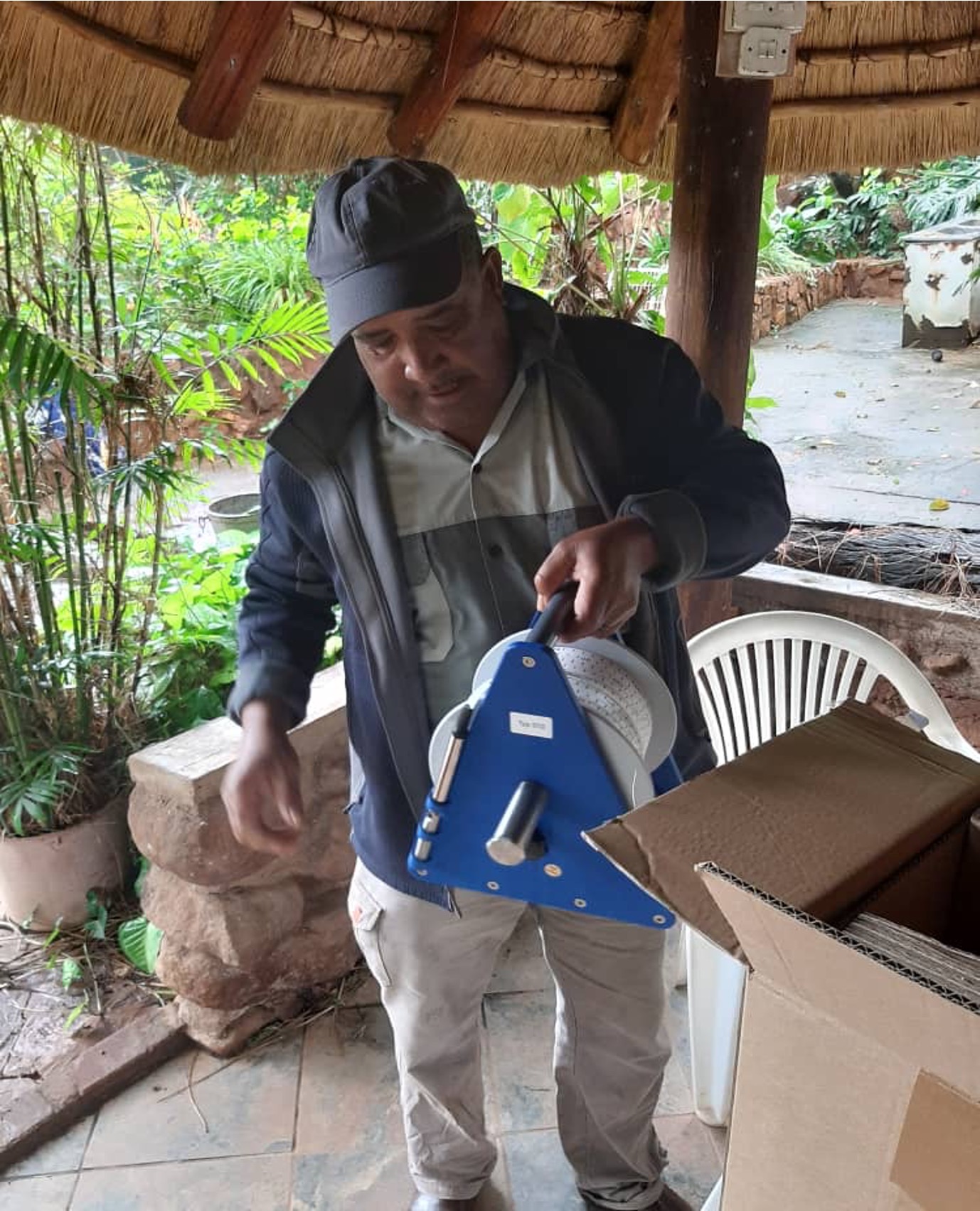As we listen to the voice of David Manamela, a citizen scientist, we capture an experience at the grassroots that stresses ‘authentic’ voice and real experience (it has integrity and the approach is ethical – listening attentively to individual stories).
Ngwena dza madi
In working with citizen scientists we observe but do not objectify. To observe is to attend to persons and things to learn from them. As Ingold (2015) notes, participant observation, in short, is a practice of correspondence: a way of living attentively with those among whom we work. It is not to arrive at retrospective accounts of what life is like but rather it is ethical and educational. As the project is about democratising knowledge, enhancing water literacy and empowering CS it is pertinent to show one of our water champions (ngwena dza madi) who is confident enough to train new volunteers as the project is upscaled.

Citizen science and groundwater monitoring in the Hout Catchment
Please take a moment to look at this blog which tells you about the project in Limpopo.
The blog is live here: https://council.science/current/blog/citizen-science/
The following quote is by Russell (2014:11) and is on the significance of Citizen Science